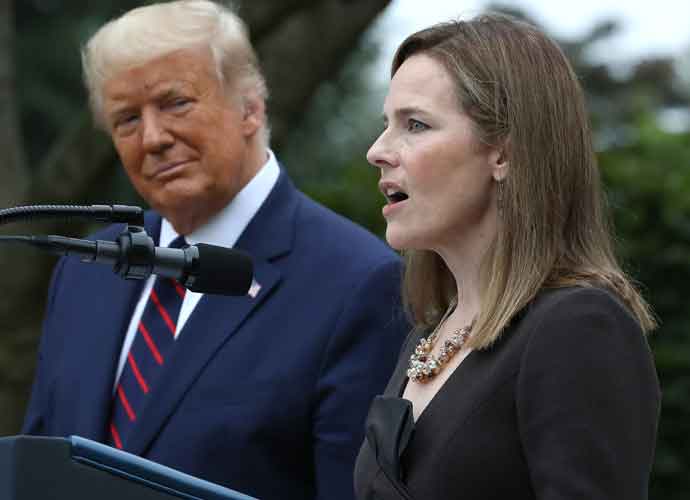Supreme Court Nominee Amy Coney Barrett Was Member Of Pro-Life Group That Supported Misleading Anti-Abortion Clinic
Supreme Court nominee Amy Coney Barrett was a member of the University Faculty for Life at Notre Dame, a group that promoted a controversial pregnancy center in South Bend, Ind., known for pressuring women seeking abortions to carry to term.
Barrett’s confirmation hearings are underway, during which she has declined to state her opinion on the precedent of Roe v. Wade.
“I think on that question I’m going to invoke Justice [Elena] Kagan’s, which I think is perfectly put. When she was in her confirmation hearing, she was not going to grade precedent, or give it a thumbs up or a thumbs down,” Barrett said in response to a question about abortion rights from Sen. Dianne Feinstein (D-California).
“I think in an area where precedent continues to be pressed and litigated, as is true of Casey, it would actually be wrong and a violation of the canons for me to do that as a sitting judge,” she said of Casey v. Planned Parenthood (1992), which upheld the basic decision of Roe v. Wade that access to abortion is a constitutional right. “If I express a view on a precedent one way or another, whether I say I love it or I hate it, it signals to litigant I might tilt one way or another in a pending case.”
Subscribe to our free weekly newsletter!
A week of political news in your in-box.
We find the news you need to know, so you don't have to.
However, Barrett’s past statements and affiliations indicate she is not in favor of the pro-choice legislation.
In 2006, she signed a letter in a newspaper calling the Roe ruling “barbaric.”
She was a part of the University Faculty for Life at Notre Dame from 2010 to 2016. The group began promoting online South Bend’s Women’s Care Center, which used misleading methods to dissuade abortion-seekers in 2016.
The WCC does not offer abortion services, and states so on the bottom of the WCC website homepage. Under a tab labeled “abortion,” the site reads, “If you’re considering abortion, we offer free, confidential services to help you find out the facts and make a plan that is best for you” and offers to provide information about both medication and surgical abortion — though the step before that is having an ultrasound to determine how far into the pregnancy a person is.
The state of Indiana, along with 25 other states, does have an ultrasound requirement prior to having an abortion — a law the pro-choice advocacy group NARAL says has “no medical justification and are designed by anti-choice politicians solely to intimidate, shame and harass women who seek abortion.”
Get the most-revealing celebrity conversations with the uInterview podcast!








Leave a comment